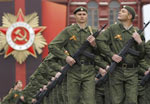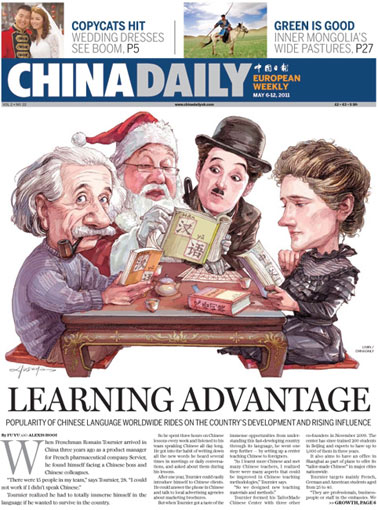Politics
Britain's coalition no bed of roses but still intact
Updated: 2011-05-10 07:55
By Danny Kemp (China Daily)
LONDON - A year after their chummy first appearance in Downing Street's rose garden the honeymoon is over for Britain's coalition, but this thorny political marriage has surprised many by surviving for so long.
Conservative Prime Minister David Cameron and Deputy Prime Minister Nick Clegg of the Liberal Democrats have faced dissent in their parties and protests in the streets as they push through harsh austerity measures.
Tensions flared last week after the Liberal Democrats lost a national referendum on voting reform and then suffered their worst results in local council elections in more than 20 years.
But Britain's first coalition government since World War II remains intact - no small matter in a country where the idea of European-style political power-sharing remains largely alien.
"David Cameron's biggest success is bolting this coalition together and actually using a coalition, which most people in Britain thought would lead to weak government and perhaps another general election almost immediately," said Tony Travers, an expert at the London School of Economics.
The coalition was formed on May 12, 2010, five days after the center-right Conservatives won the most seats in a general election but fell short of a majority.
After five days of horsetrading during which Labour prime minister Gordon Brown resigned, the Conservatives finally wooed their erstwhile foes, the centrist Liberal Democrats.
Clegg secured a concession on one of his party's most cherished causes - a promise for a referendum in May 2011 on whether to abandon the first past the post system that Britain uses to elect its lawmakers.
Commentators jokingly compared the telegenic Cameron and Clegg to newlyweds after their relaxed double act at a news conference in the rose-lined garden of the prime minister's residence at 10 Downing Street later that day.
Together they pledged a "radical" government that would introduce public spending cuts to tackle a record deficit left by Labour.
The smiles did not last long, however.
In October the coalition detailed its plans to triple tuition fees for university students, overhaul the welfare system and make big reductions across all government departments.
A series of protests erupted in London and turned violent on several occasions. Rioters in December attacked the car of heir to the throne Prince Charles and smashed their way inside the finance ministry.
And it was soon clear the Liberal Democrats were becoming a shield for the Conservatives. Clegg in particular became a hate figure during the demonstrations for allegedly breaking his election promises.
Foreign issues including Britain's military role in Libya gave the coalition some breathing room at the start of the year, while the wedding of Prince William and Kate Middleton on April 29 provided a feel good boost.
But just a week after the royal marriage the political one started to rupture, when a war of words erupted over the referendum on whether to change to the Alternative Vote for general elections.
Agence France-Presse
E-paper

War of the roses
European Chinese rose growers are beating their Chinese rivals at their own game
High-tech park gets big boost
At the source
Merchant of Venice
Specials

Sino-US Dialogue
China and the US hold the third round of the Strategic and Economic Dialogue on May 9-10 in Washington.

Drunk driving
Drunk drivers face a detention for one to six months and a revokation of their drivers' license.

V-Day parade
A military parade marking the 66th anniversary of the Soviet victory over Nazi.
